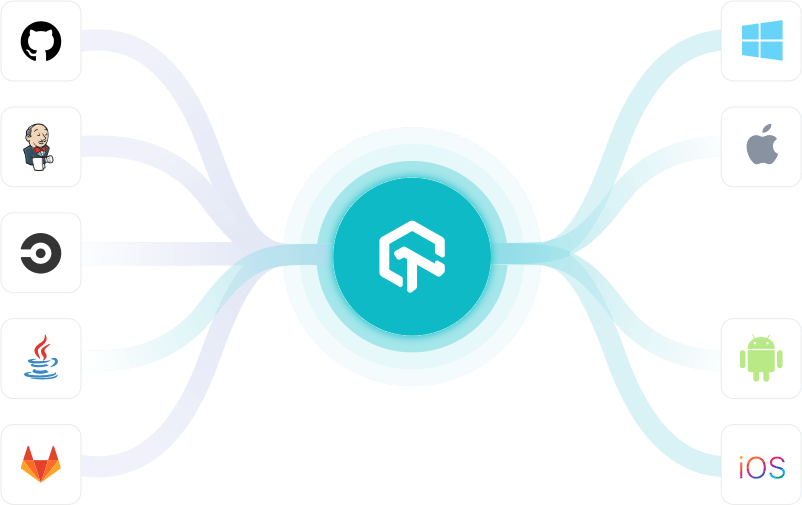
In the world of mobile app testing, the three most popular frameworks are Appium, Espresso, and XCUITest. Choosing the right test automation framework for your mobile app can be a challenging task. In this article, we will provide a detailed comparison of each of these frameworks to help you decide which one best fits your needs.
What is Appium?
Appium is an open-source mobile application testing framework. It was created to help developers quickly and easily test their mobile applications on various platforms and devices. Appium allows developers to write test cases in any language, such as Java, Objective-C, Python, and JavaScript. This makes it easier to test the functionality of their applications and ensure the best user experience.
The Appium framework is based on the Selenium WebDriver API and is used to automate the testing of mobile applications. It supports both native and hybrid mobile applications, allowing developers to test on different platforms such as Android and iOS. Appium also supports multiple device configurations, including phones and tablets, allowing developers to test their applications on various devices.
Features of Appium
Appium has many features that make it an attractive option for mobile application testing. One of its most important features is its cross-platform support, which allows developers to write tests in any language and test their applications on different platforms. This makes Appium an excellent option for teams that need to test their mobile applications on multiple platforms.
Another essential feature of Appium is its support for native and hybrid applications. Appium allows developers to test native applications, such as iOS and Android, and hybrid applications, such as React Native or Cordova. This makes it easier for developers to test their applications on various devices and platforms.
Appium also supports a wide range of device configurations, such as phones and tablets. This allows developers to test their applications on a range of devices and ensure the best user experience. Appium also supports running tests in parallel, which allows developers to quickly and easily test their applications on multiple devices.
Advantages of Appium for Testing
Appium provides several advantages for testing mobile applications.
- Due to its open-source nature, which makes it free to use and allows developers to quickly and easily test their applications.
- Supports a wide range of languages, making it easier for developers to write tests in their preferred language.
- Supports both native and hybrid applications, making it easier for developers to test their applications on multiple platforms.
- Supports a wide range of device configurations, allowing developers to test their applications on various devices.
- Supports running tests in parallel, making it easier for teams to quickly and easily test their applications on multiple devices.
What is Espresso?
Espresso is an open-source mobile application testing framework developed by Google and used for Android applications. It is a testing tool that allows testers to write UI tests for automated testing scenarios. Espresso is a powerful and efficient framework for testing mobile user interfaces, which provides a simple syntax for writing tests and making them easier to maintain. The framework is built to detect changes in the user interface and provide feedback, allowing it to be used for automated UI testing.
Espresso comprises a series of components: an Activity Monitor, an Espresso Core, an Interaction Controller, and an Instrumentation Framework. The Activity Monitor is responsible for keeping track of the lifecycle of an Activity, and it is also responsible for managing multiple Activities. The Espresso Core is responsible for managing the execution of tests and is also responsible for handling error cases. The Interaction Controller is responsible for interacting with the user interface and simulating user actions. Finally, the Instrumentation Framework provides the environment in which tests can be executed.
The Espresso framework comprises two parts: the Espresso Core and the Espresso Instrumentation. The Espresso Core is responsible for the execution of tests, managing errors, and providing the environment for test execution. The Espresso Instrumentation is responsible for providing an access point to the UI and allowing the framework to interact with the user interface.
Features Offered by Espresso
The most important features of Espresso include its ability to detect changes in the user interface, its integration with Android Studio, its ability to generate test results in the form of HTML reports, and its support for both Espresso and JUnit test frameworks. Espresso has the ability to detect changes to the user interface and provide feedback to the developers and testers, allowing them to make adjustments or additions to the user interface in a timely fashion. Espresso also has the ability to integrate with Android Studio, making it easy for developers and testers to access the framework and its features. Finally, Espresso has the ability to generate test results in the form of HTML reports, giving testers and developers an easy way to see how their tests are performing.
Another important feature of Espresso is its support for Espresso and JUnit test frameworks. The Espresso is a powerful tool for creating and executing tests, and its support for both frameworks makes it easy for testers to use whichever framework best suits their needs. Additionally, Espresso also provides support for test automation, allowing for more efficient execution of tests.
Advantages of Using Espresso for Testing
Espresso provides numerous advantages for testers and developers.
- The primary benefit of using Espresso for testing is its ability to detect changes in the user interface and provide feedback to the testers and developers. This allows for adjustments or additions to the user interface to be made promptly.
- Espresso’s integration with Android Studio allows easy access to the framework and its features. Furthermore, Espresso’s support for both Espresso and JUnit test frameworks allows testers to choose which framework best suits their needs.
- Finally, the ability to generate test results in the form of HTML reports makes it easy for testers and developers to see how their tests are performing.
What is XCUITest?
XCUITest is an automated testing tool used for developing iOS applications. It allows developers to quickly and efficiently create user interface tests and performance tests. XCUITest can be used to create and execute automated tests on both iPhones and iPads, offering a quick and accurate assessment of the quality of an app. XCUITest is an integral part of the Xcode integrated development environment and is used alongside the Swift programming language. Together, these features create an efficient and effective testing platform.
Key Features of XCUITest
XCUITest has a variety of key features that make testing efficient and accurate. One of these features is the ability to create multiple tests and run them simultaneously. This allows developers to test multiple aspects of an app at once, resulting in faster and more accurate results. Another feature of XCUITest is its user-friendly interface. The interface is intuitive and easy to use, which makes it accessible to both experienced and novice developers. Additionally, XCUITest is integrated with the Swift programming language, making it easier to debug and troubleshoot tests.
Benefits of XCUITest
XCUITest offers a variety of benefits to developers.
- One of the biggest advantages of XCUITest is its speed and accuracy. By allowing developers to test multiple aspects of an app at once and to integrate tests with the Swift programming language, XCUITest ensures swift and accurate results.
- Additionally, the user-friendly interface makes it accessible to all developers, regardless of their experience level.
- Finally, XCUITest provides an easy and efficient way to debug and troubleshoot tests, which helps developers improve the quality of their apps.
Which One is the Best?
In modern days, mobile app testing is evolving rapidly to perform mobile-friendly tests to provide an immersive user experience. With the emergence of various tools and frameworks, it has become almost impossible to keep up with them. Appium, Espresso, and XCUITest are among the most popular mobile automation frameworks currently used to test mobile applications. These frameworks have many similarities and differences that make them suitable for various tests.
Appium is an open-source mobile automation framework for automating native, hybrid, and mobile web applications. It provides a strong platform to streamline the testing process and make life easier for testers. Appium supports Android and iOS devices and can be used for all tests, from unit tests to performance tests.
Whereas, Espresso is a mobile testing framework developed by Google that is mainly used for testing Android applications. It is mainly used to test user interface behavior, state transitions, and interactions. Espresso offers a wide range of features, such as support for multiple programming languages, different versions of Android, and a simple API to interact with the device. Espresso also supports integration with various other development tools, such as Android Studio and Jenkins.
XCUITest is an Apple-specific framework mainly used for testing iOS applications. It also has similar features to Espresso and Appium.
Each of these frameworks has its own set of advantages and disadvantages. Appium is the best choice if you need to test a wide range of devices running different versions of Android and iOS. Espresso is the best choice to test user interface behavior, state transitions, and interactions for Android applications. XCUITest is the best choice if you need to test user interface behavior, state transitions, and interactions for iOS applications. It is important to remember that all of these frameworks can be used to automate native, hybrid, and mobile web applications. Therefore, choosing the right framework for your testing needs is essential.
Final Thoughts!
LambdaTest is a comprehensive solution for all your Appium, Espresso, and XCUITest testing needs. Whether you are a mobile application developer or a QA engineer, LambdaTest’s cloud-based infrastructure enables you to run tests on a wide range of devices and operating systems, ensuring compatibility and reducing the time and resources required to set up local testing environments.
In addition, LambdaTest’s integration with Appium, Espresso, and XCUITest provides a seamless testing experience that is both efficient and cost-effective. Whether you are new to testing or an experienced professional, LambdaTest provides a comprehensive solution for all your mobile testing needs.








